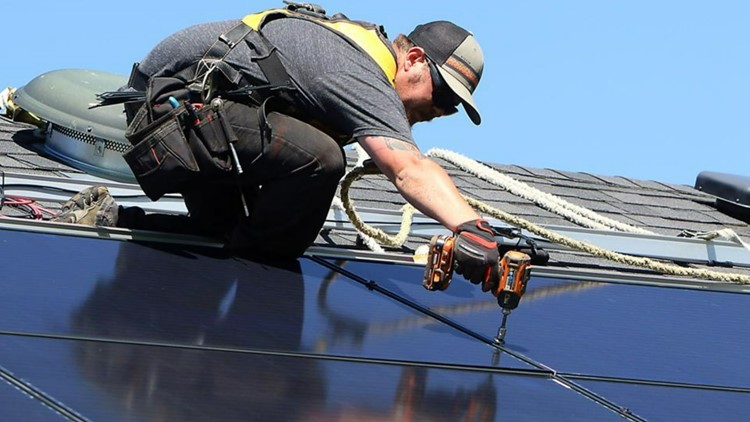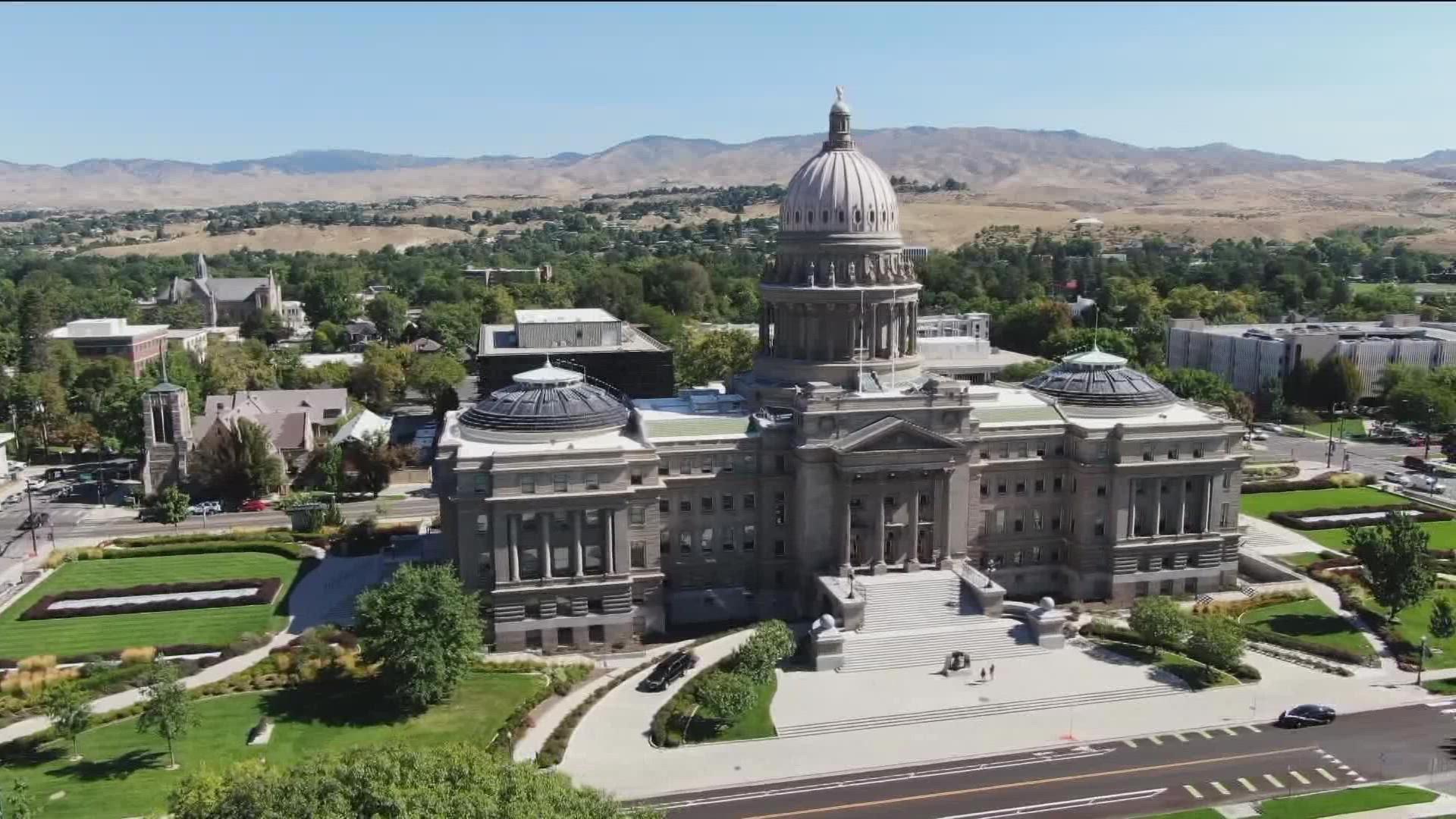BOISE, Idaho — This article originally appeared in the Idaho Press.
A wide swath of Idaho high school students, homeowners, and business owners spoke out against an Idaho Power study about the cost and benefits of solar power at an Idaho Public Utilities Commission meeting on Thursday night.
Many speakers questioned the study, calling it biased, incomplete, and an example of the fox guarding the hen house. If adopted, they worry that the proposed cut to the export credit rate — the rate solar power generators are paid for the power they give to the grid — would discourage people from adopting rooftop solar on their homes.
“Our members want to see more solar panels in their communities to help address the climate crisis, improve public health, advance our clean energy economy, create green jobs, build local grid resilience, and stabilize energy bills,” Sierra Club-Idaho Executive Director Lisa Young said at the hearing. “They’re concerned that Idaho Power’s attempts to quash locally owned solar will keep these critical opportunities out of reach for Idaho communities at a time we need them most.”
People filled the commission hearing room, with about 50 people signing up to testify. Attendees mostly hailed from the Treasure Valley. It was the third to occur regarding the study; the utility commission’s first hearing was held in Pocatello on Oct. 27, and its second hearing took place on Wednesday in Twin Falls. The utility commission accepted written comment on the study until 5 p.m. on Friday.
The study, called the Value of Distributed Energy Resources, or VODER, examined home-generated solar power, including costs and benefits, and what households that generate excess solar energy receive in compensation from Idaho Power. As a result of that study, Idaho Power is proposing decreasing the export credit rate from 8 to 10 cents per kilowatt hour to 2.8 to 4 cents per kilowatt hour for people who have solar panels installed after December 2019, according to an earlier analysis from the Sierra Club.
Jordan Rodriguez, a communications specialist for Idaho Power, responded to a written request for comment Friday, saying, “Idaho Power supports solar energy and fair prices for all customers. We appreciate the opportunity to hear feedback from the public and we look forward to continued engagement as this case proceeds.”
Some testifying Thursday said that the commission needs to ask for an independent study and characterized the utility as a monopoly intent on keeping its power over the local energy market.
“This is not a study, ladies and gentlemen,” said Boise resident Jim Van Dinter, “this is a PR piece.”
Many speakers said they were worried that they would not receive compensation for the energy they generate at a rate that would make it possible to pay off their investment in solar in a reasonable timeframe. Nathan Grant, a Caldwell resident, said he had solar panels installed in August to help “fix costs” for his growing family, but now he is concerned that if the study is accepted, he will not see returns any time soon.
“That just defeated the purpose of why we go solar,” Grant said. “So I think it’s very important, especially for young families on budgets and also for people on fixed incomes, that they’re allowed to get kilowatt hour per kilowatt hour.”
Others criticized the study for not including the environmental and human health benefits of reducing carbon pollution.
Jacob Anderson, a Boise resident, said promoting rooftop solar would help Idaho Power achieve its goal of 100% clean energy by 2045.
“We all need to act on climate change now, not in 2045,” Anderson said. “So when an army of homeowners is willing to put up their own capital right now to generate their own carbon-free power and help power their neighborhoods, saving Idaho Power from having to put money into expensive transmission and distribution upgrades, saving Idaho Power from having to build expensive new power plants, why does Idaho Power discourage them by trying to lowball the value of the power they feed into the grid?”
Bishop Kelly High School senior Molly O’ Sullivan said, “to make clean energy commitments and to promote anything but is a violation of the faith of the community that depends on this power.”
Idaho solar company representatives and owners said the move would likely diminish customer interest in installing solar panels, and would affect an industry that has flourished in the state in recent years.
“In general, the people in the area that are involved in solar, it’s not just as a renewable energy, but as their lifestyle, their occupation,” said Trissa Morain, a Blackfoot resident who said she works for a solar company that employs 150 people.
Dylan Davis, a Meridian resident and owner of a solar company, said it does not make sense that Idaho Power would want to disincentivize solar at a time when the federal government has increased its incentive.
“I’ll leave my comments with this thought: should we think of adding another power company instead of penalizing solar customers?” Davis said. “Imagine if Chevron were the only gas station in town.”
Rachel Miller, the general manager at Boise-based RevoluSun, said reducing the export credit rate would limit Idahoans' choice of where and how to get renewable energy, which "goes against Idaho's values." She suggested the telecommunications industry as a parallel for how the commission should regulate access to solar.
"We don't dictate whether or not people can have a cell phone," Miller said. "We don't force them to use a landline. Our politicians don't create or support laws that make purchasing a cell phone prohibitive under the guise of protecting their access to communication. And we certainly don't allow those telecommunication companies to single-handedly control those policies."
The next step in the process is for the Idaho Public Utilities Commission to decide whether to accept the study, which would set in motion a hearing process in the spring for setting the new export credit rates, according to a news release from the Sierra Club following Thursday’s hearing.
This article originally appeared in the Idaho Press, read more on IdahoPress.com.
Watch more Local News:
See the latest news from around the Treasure Valley and the Gem State in our YouTube playlist:



